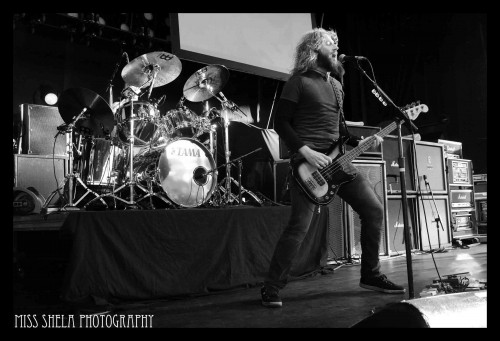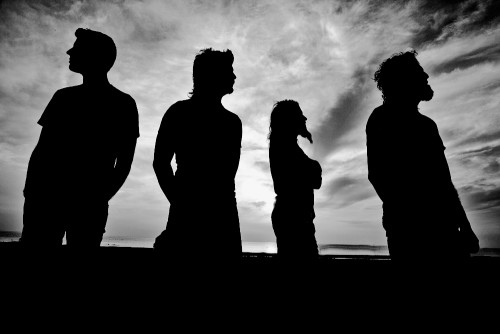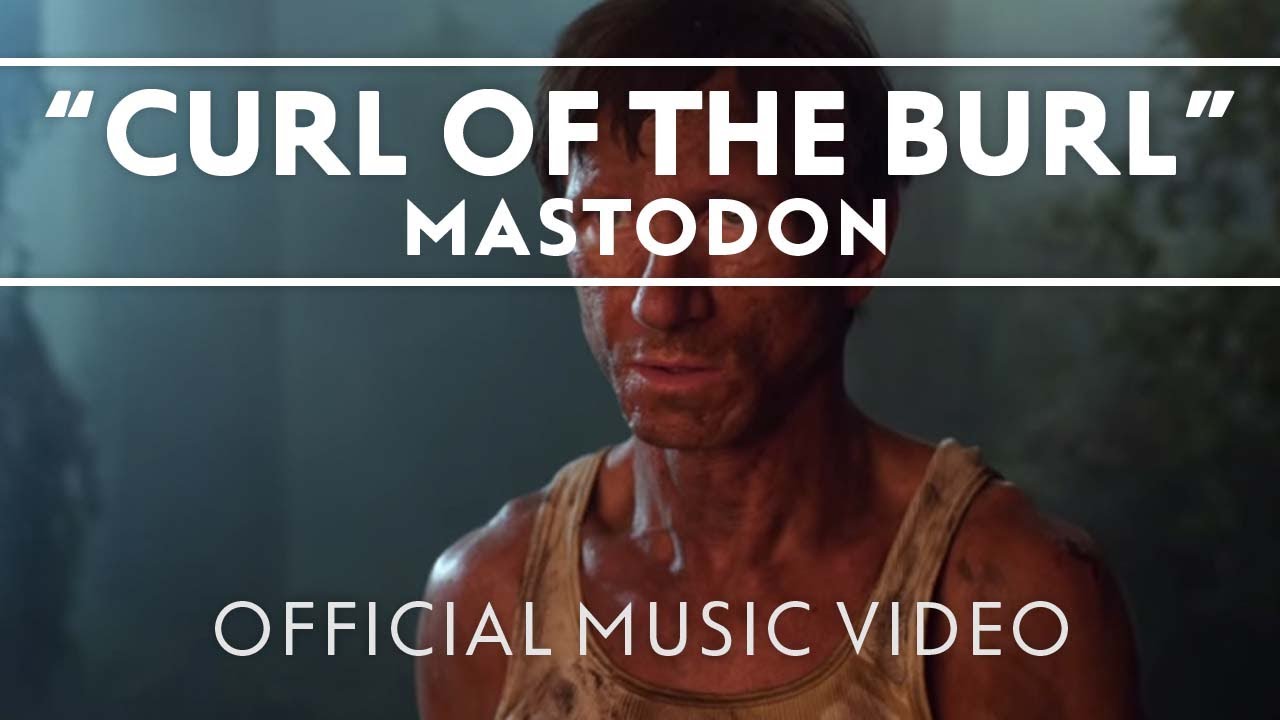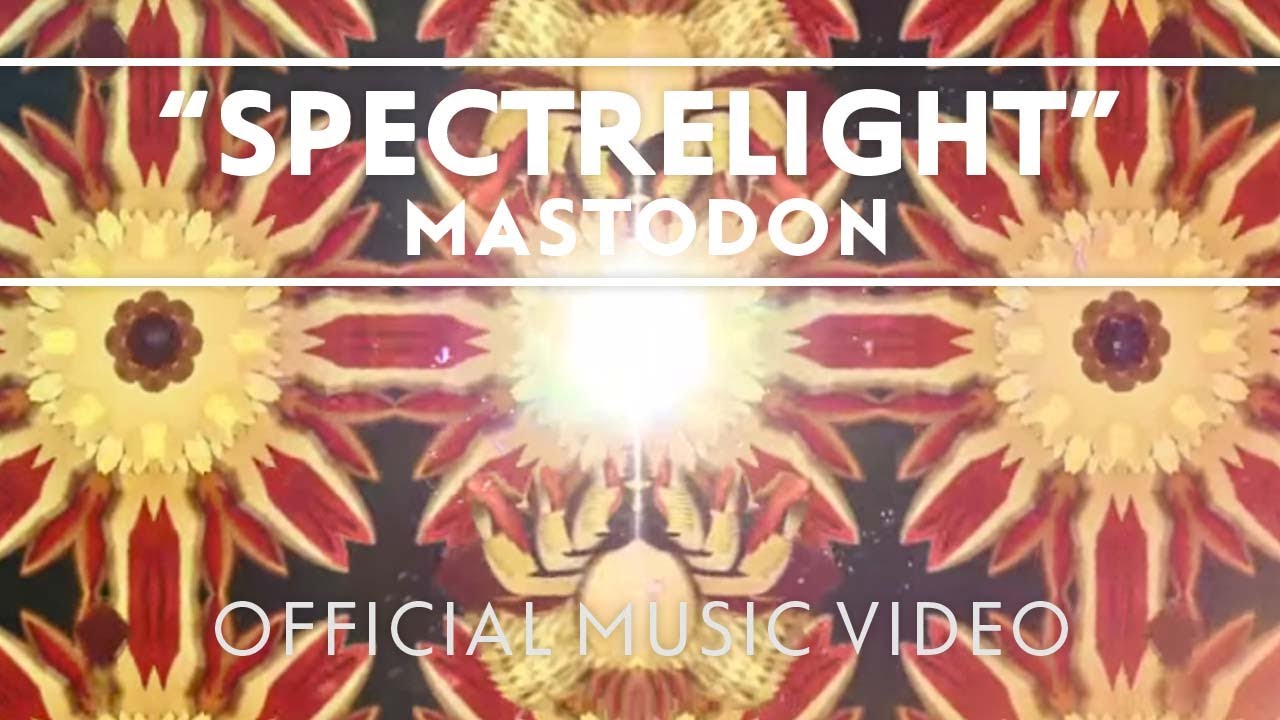It’s February 2010, and Mastodon are playing to a sold out Roundhouse in Camden, North London. Several months earlier they released what many considered their magnum opus, Crack The Skye, the mind boggling, conceptual odyssey about a paraplegic who traverses time and space to find himself both at the end of the universe and in Tsarist Russia. Despite the album topping numerous end of year polls, earning the band critical acclaim and a legion of new fans, there’s something not quite right. Tonight the four men up on stage just don’t look at all happy. Granted, Mastodon have never been ones to enter into unnecessary banter with their audience, but tonight it feels like there’s an unspoken, unacknowledged weight on the band; yes they play the album (almost) in its entirety, and furnish those in attendance with a ‘greatest hits’ encore, but things never take off, things never look, well, fun.
It’s June 2011 and in the middle of a field in Knebworth, in the middle of the afternoon, Mastodon are screaming into ‘March Of The Fire Ants’. The sun is shining, the pit is going mental, Brent Hinds is wielding his guitar high above his head and bassist Troy Sanders is grinning and gurning like he won the pools and then spent the money on amphetamines. The performance goes on to be one of the highlights of the weekend; it’s energetic, immediate, immersive and, well, fun!
Unbeknownst to most of the world much had changed for the Atlanta-based quartet in those intervening 16 months; the announcement of a new album, to be entitled The Hunter, was made just prior to their festival performances and soon details emerged that for album number five there was to be no overriding conceptual theme, that the wood carvings of AJ Fosik had been preferred to the illustrations of Paul Romano for the art work and that many of the tracks were four minutes or less. And soon enough everyone started to speculate as to what had changed between those two UK performances.
Well, enough with specu-fucking-lation, if you want to find out what’s happening with Mastodon, well, I guess you go and ask them, don’t you?
Following the enormous success of Crack The Skye there must’ve been an immense sense of pressure when creating The Hunter?
Brann Dailor: No, not really. It’s more internal pressure, pressure that we naturally put on ourselves to come up with something cool. But things just came more naturally this time than I remember them ever coming before. Things just happened. We went with the flow and followed those songs where they wanted to go; it came pretty easy once we finally got together and started working on it. It was the time in between where we weren’t sure what was going to happen – if we were going to be able to get into a studio before coming over here for the tour that we finished two or three weeks ago. Luckily we got into the studio and finished it, so it all came together pretty quickly.
But given the numerous personal and professional obstacles – Brent and Bill’s side-projects for example – the build up must’ve been pretty stressful?
Troy Sanders: Well, once we got together – whether it was any three or all four of us – overall I think it came together relatively quickly and painlessly.
BD: It was stressful, but mainly because there were things that were out of our control – things with band members that left questions as far as being able to get down to the space and work on the record. Although the record was important – it’s our lives after all – there were other things happening that were maybe more important, for Brent and for Bill, that needed to be dealt with and we weren’t sure how that was going to play out.
The death of Brent’s brother must’ve had a lot to do with that?
BD: Yeah, that happened back in December. Although Brent really handled it pretty well – is handling it pretty well – it’s a really hard thing to go through, y’know? And when something like that happens you don’t know how a person is going to react. Everyone deals with it in a different way, but Brent’s got his guitar and he pretty much never puts that thing down, he’s just always playing guitar and always coming up with new stuff and I think that we all need Mastodon as a sort of release. It’s a perfect place to put those things.
I understand that a lot of the record was written on the road this time?
BD: Yeah, during the Alice In Chains tour. We cancelled a European tour due to Bill getting sick and we came home from that not feeling that great about our situation as a band – we knew we needed a break and we knew that it was for the best that that happened, but we kind of came home to like [sighs heavily], y’know what I mean? Like, fuck man! We’re not machines, we’re not robots, as it turns out we can’t just go and go and go. But then we did the Alice In Chains and Deftones tour and those two bands are two of the most inspirational bands you could go out with just because of what they have been faced with and the obstacles they have had to overcome as bands – Chi’s situation with the Deftones and Alice In Chains’ lead singer is dead… I mean, he died – that’s crazy! So the fact that they’re up there doing it and sounding great – it was just a great tour to be on, it was the perfect tour for us to be on to close that chapter of Crack The Skye.
So, yeah, during that tour we had amps set up backstage and the guys would be back there messing around, just playing guitar and coming up with stuff and a lot of riffs on the new album came out of that.
Looking back on it, just how refreshing was it that you were creating without even really thinking about it?
BD: Oh, totally! It was just dudes back stage messing around with guitars; I’d hear Brent playing something and be like, ‘That’s awesome, I got to go get my phone!’ So I’d get my phone and I’d record it, then a month later I’d be at home listening through all the riffs I’d collected and there was just a bunch of really killer stuff; I was just like, ‘Man, I swear to God there’s the skeleton of a kick ass album just sitting in my phone’ and Troy was like, ‘Dude, you better back that shit up man!’
[Both laugh]
TS: Yeah, I was like, ‘Pleeeeease plug your phone into your computer because if you lose your phone we’re going to lose a whole album!’ So, in early 2011, when we did reconvene in our rehearsal space, the first four, five, six days of that were basically Brann pouring out the ideas he’d collected on his phone, and sifting through these riffs that…
BD: [Interrupting] ‘You guys remember this?’ ‘No!’
TS: …And so the first week was having Brann’s phone re-teach us cool riffs that we had come up a couple of months ago – it was kind of different!
BD: And then things kind of grew out of that on the spot. He [points at Troy] pulled out a riff that turned into a song called ‘Dry Bone Valley’ that he found on some little dictaphone…
TS: …from the Tool tour in 2006!
BD: He was like, ‘Man, I’ve always really liked this riff.’ [imitates riff] So yeah, we were like, ‘Cool, there’s another song,’ or, ‘That’s a good starting point for that song.’ Early on we had a good skeleton for an entire record but then some things happened, life got kind of life-y and started dealing some cards that we weren’t expecting, so we were just left waiting, but also just enjoying our time at home. I wasn’t in any big rush to get back on tour. I wanted to take the time to let things happen, go to some hockey games, cook my own food and hang out with my wife and be a normal person for a while, whilst also going down to the practice space whenever anyone could get together to try to work on stuff. We always knew we had something cool that we should work on, but we could see this tour…
TS: The summer tour was due to start June 1, and this is around the beginning of April when these ideas were bouncing around. So we knew in less than two months we were going to Europe for a seven week festival run.
BD: We really needed to figure out what the hell we were going to do, for real. Like, are we going into the studio, are we not going into the studio? We’re actively working on some songs and if we get to the point where we dig ‘em, but we don’t have enough for a record then what’s going to happen to these songs if we go away for like two months? They might not have the staying power, y’know?

There’s not such a strong elemental theme with this record – there’s the loose theme of wood, but there’s not a specific concept. Why?
BD: We didn’t want to do a concept album; well, we did at the start. I had this whole idea because I expected that that’s what everyone would want – I had this whole story that I worked on for a while and then Brent was like, ‘Do we have to do that? Do we have to do another concept album? I feel like we’re ‘that’ band, like, ‘Oh they’re a band that does concept albums and it’s going to sound like this and duh-du-duh-du-duh.” When he said that everyone kind of went, [sighs with relief] ‘We don’t have to do that, yeah, we can just change everything. Cool!’ And that kind of opened the floodgates; from that point on we were really motivated to finish the record and get in there and record it. It felt like just riff, after riff, after riff just started coming and everything just got a lot lighter, like, ‘Yeah, call that song ‘Blasteroid’. And call that song ‘Stargasm’, call that song ‘Curl of The Burl’ – it’s about meth heads running around the woods with fucking chainsaws.’ Y’know what I mean?
Ah yes, I’ve heard about this one – isn’t it about meth heads that get addicted to looking for these burls to sell, so they can buy more meth?
BD: Yeah, sort of. Basically they go into the woods and find these growths that are called burls, when a tree has cancer or goes through a stressful period it’ll grow this compressed, bulbous knot and furniture makers will pay top dollar for a really nice one. So these guys go out there in the Pacific North West US and they’ll cut down these trees – they’re loggers, y’know? They go out there and chop down these fucking trees and they get the burls, fill up their trucks and go into town and sell them to furniture makers, or whoever’s going to buy it, and it affords them to fund their drug habit. It’s kind of a vicious circle: They’re addicted to finding the burls, they’re addicted to the meth… And they’re out there in the woods! It’s just a wild situation, y’know what I mean?
But its stuff like this that wouldn’t have been able to see its way into any kind of concept album. It [the album] didn’t have to be cohesive, y’know what I mean? It didn’t have to have a start, a middle part and end and have things work in a certain way, it was just very free – I think that record sounds like a free spirit.
There are tracks on The Hunter, like ‘The Octopus Has No Friends’ that have a very humorous element, which might surprise some people. Was that a reaction to what had been going on previous to the recording?
BD: Yeah, I think it’s pretty obviously a knee-jerk reaction to years of playing Crack The Skye and really being bogged down with a really serious and emotionally heavy record – you go out there on stage, you sit there and relive some of those things every night and it’s like, ‘Whoa [sigh], can we do something else now? Something that’s a little less, y’know, ‘heavy’?’
TS: It’s a little more lighthearted, definitely.
The way you’ve done this album, it very much reminds me of Remission, the way it’s just riff, riff, riff. This isn’t some sort of closeted swan song, is it?
BD: No, no! But it sounds like all the old albums rolled into one, and that’s something new… I think!
The track ‘Creature Lives’ is very unusual for Mastodon – it’s got synths, chanting etc – how did that track come about? And what’s it about?
BD: That’s actually one of my songs. A guy that we know came in and played some Moog stuff for the intro – but originally it was just the second part of it, where it kicks in with the bass. I have a little keyboard at my house, in my little music room. I was just messing around and played that keyboard riff, y’know? So I recorded it on my phone and sent it to Troy and he really liked it. But we were kind of knee-deep in a lot of other things that we were working out with the guitar players, so I wasn’t sure that it was going to see the light of day. But I knew Troy really liked it, and he took the time to actually sit and learn it on bass, like, ‘I really like that thing – it’s weird and it’s cool, but I don’t know what it is.’
So much later on I was driving my car to practice and it just kind of dawned on me, the vocal line and the melody. [hums the tune] I just heard the music kind of dropping out and then just singing [sings the chanting line] and I was just like, ‘Yeah that’d be cool, people could sing along and it’d be a cool thing to play live. We’ve never had an audience participation song before.’
TS: Unexpectedly we found a potentially anthemic breath of fresh air for Mastodon, and I hope that all 50 people at our shows join in! We invite them to become one with us and I think that’s the perfect example of maybe that happening.
BD: Yeah, it really came out of nowhere.
TS: Listening back to it at first we were like, ‘Wow! That sounds nothing like us!’ But we didn’t care. We were like, ‘Well, it is us! That’s cool, that’s different.’ And the band was excited about it so we were like, ‘Yeah, let’s go for it!’ Right of this moment it’s my favourite track on the record.
I’ll be honest, I wasn’t expecting it – when I first heard it I was shocked, but it doesn’t ruin the flow of the album or anything does it?
BD: I love that song. I’m happy that we worked on it, I’m happy that Brent called in sick to practice that day. It was just me and Troy down there and we had an engineer that was doing demo stuff with us so he was like, ‘What do you want to do?’ and we were like, ‘Well I guess we’ll work on that thing?’
It’s about the Creature from the Black Lagoon, right?
BD: Kind of…
TS: I want to say it’s about this baby, this creature baby…
BD: More like a child…
TS: The Creature from the Black Lagoon is his mother and Swamp Thing is his father and growing up, looking in a mirror, he’s saying, ‘Y’know what? I’m different. Do I belong, are people going to accept me? Am I worthy?’
BD: And us as Mastodon, we’re trying to help him, we want to be friends with him. But the other kids don’t, they don’t like him, they say that we should go and live in the swamp with him… [Directed at Troy] ‘Why don’t you go and live in the swamp with your friend there?’
TS: ‘I will, I will!’
BD: Me and the creature will be best friends…
TS: That creature reminds me of the underdog, and we’re rooting for him, he can pull through and be triumphant. And that’s what happens – he’s accepted.
You enlisted Mike Elizondo to produce – he’s more known for hip hop work. What was the thought process there? I assume it’s not because you’re gunning for mainstream acceptance?!
TS: No, not at all.
BD: Oh yeah, he rolls in the club – what can he do for Mastodon?!
TS: He’s a very well rounded musician. Growing up he played bass in thrash metal bands and he eventually went on to be a bass player for Dr. Dre for nine years. He went from thrash metal to orchestra music over to working with Dr. Dre, then he went and produced a Fiona Apple record and played bass for Mavis Staples – he’s all over the place and he’s very talented at a wide range of music.
BD: He approached us and we had the same questions, ‘This hip hop producer, what does he want with us?’ ‘Well he’s a big fan and he wants to meet you guys and talk to you about it.’ So we had him down to Atlanta, and it was right when we had first come together and maybe only had a couple of practices working as a band, as a cohesive unit. So we ate some tacos with him, and we talked to him about how we viewed our band and he was on the exact same page as we were – we wanted to do something that was, for lack of a better word, fun, y’know? And we wanted to remember why we started the band in the first place: because it was crazy and fun; weird and psychedelic here and heavy metal there; and rock & roll. He was just totally ready to go.
TS: And on the flip side, I don’t think we’d have entertained the idea of a well known heavy metal producer who was strictly in one genre. We had various songs with these slow strings and beautiful guitar layered parts, and then we had these straight up tracks like ‘Blasteroid’ and ‘Spectrelight’… Musically, for Mastodon, it was a little bit all over the place so we definitely wanted someone who would understand everything that we wanted to do, and would help us put our ideas onto tape. We wanted a well rounded and musically intelligent producer.
BD: And plus, as big a heavy metal fan as I am, I’m not really too excited about how heavy metal sounds these days, it’s not really my thing – tik-tack-y, solid state sounding guitars. It just feels kind of lifeless to me, like it’s all machined or something. I like the 70s-sounding or the 80s-sounding recordings. As far as heavy metal is concerned they’ve lost the human element.
Given the abandoning of the concept some people are likely to say that this is a step backwards for Mastodon – what do you say to those people?
TS: I don’t want to say anything to them!
BD: I guess I feel like we made the record with the best intentions, it came honestly and we made it for people that love it – the people that fall in love with it will fall in love for the right reasons. And the people that don’t like it… that’s fine too. Everyone is going to have an opinion about it, y’know, but ‘a step backwards’? No.
To be fair, I don’t think you’ll have many complaints!
BD: Oh, there’s been complaints. I’ve played people ‘Curl Of The Burl’ and they’re like, ‘What! They sold out! It’s way too simple for Mastodon!’
TS: I still want to know, if we ever do sell out, how do I know? Like, we haven’t sold shit! I don’t know what the fuck that means! But that song, for example, came about from Brent tuning his guitar the same as it was for ‘March Of The Fire Ants’. And Brann was like, ‘What is that?’ and he’s like, ‘I don’t know, I’m tuning my guitar.’ ‘Well, do it again!’ Then he’s like dum-duh-duh-dah, dum-duh-duh-dah [air drums]. Then 20 or 30 minutes later Brann calls me: ‘Dude, we’ve got a great song!’
BD: Yeah, it was written in like, 15 minutes.
TS: It was the furthest thing possible from, ‘Hey man, let’s write, like, a really catchy song – like short and sweet and catchy.’
BD: It was pretty much a case of this is what Brent sounded like stoned on that particular day. He came in and was ripped – so ripped – and just plugged his guitar in. I was like, ‘Well let’s just jam then – let’s not try to concentrate on working on anything, let’s just see what happens,’ and it was like wah-wah-wah-oo. I have it on here, the initial jam… [Searches iPhone for recording]
TS: We also realise that for the people of the world who care or not, it’s impossible for us to please everyone – it’s impossible for any artist to please everyone, we know that. Therefore when people don’t care for our band it doesn’t hurt our feelings. When the four of us are happy with it we want people to like it, we’d love for people to immerse themselves in it and become one with us , but we don’t expect anyone to love us, y’know.
BD: Quite the contrary, we expect people to hate us!
It’s at this point that Brann finds the original iPhone recording of the intro riff to ‘Curl Of The Burl’ and the as the three of us crowd around to listen to a quiet, tinny, three minute demo, the conversation turns to the smallest, most run-down strip club in Atlanta (The Clairmont) and ‘Blondie’, the stripper who crushes beer cans on punters heads… With her tits. Then, I’m told, our time is up.





